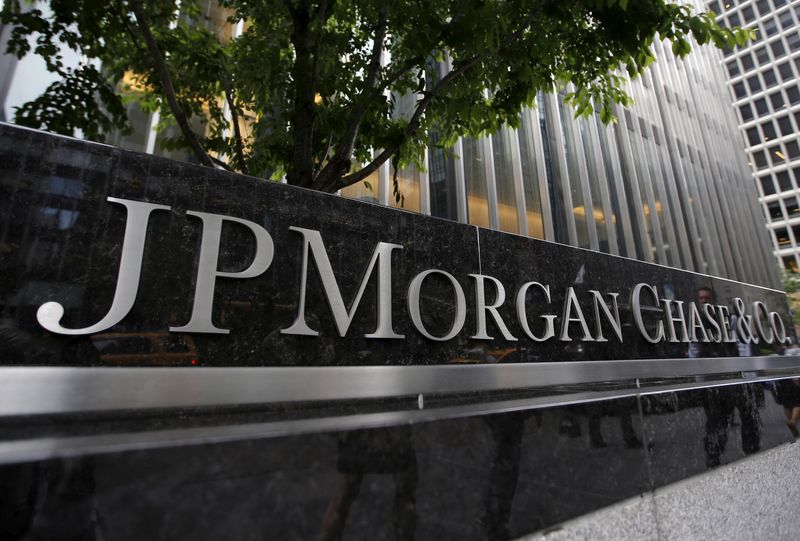By Lananh Nguyen
PLANO, Texas (Reuters) - JPMorgan Chase & Co (NYSE:JPM) plans to hire about 2,000 engineers worldwide through the end of the year despite a worsening economy, its global chief information officer, Lori Beer, said on Wednesday.
The biggest U.S. lender added a net more than 5,000 software developers and data scientists last year and aims to attract a couple thousand more at a time when technology giants have stopped hiring or are cutting jobs. Tech workers comprise about 20% of the bank's roughly 278,000-strong global workforce.
"We're definitely still hiring," Beer said in an interview at the bank’s office in Plano, Texas, at DevUp, an internal JPMorgan conference gathering 500 of the company's top engineers. The investment signals JPMorgan is "a safe place through the uncertain economic times. ... When you're going into a tough economic time and things are very volatile, it does play into our favor," Beer said.
The roles will be across the bank, including in general software engineering, data science, cybersecurity and cloud computing, among other areas.
Competition in hot technology job markets such as Silicon Valley, Seattle, Texas and India has abated slightly, with fewer candidates weighing multiple job offers at the same time, Beer said. Some technology companies, crypto exchanges and financial firms are cutting jobs and slowing hiring as global economic growth slows.JPMorgan's Plano campus, built on a former horse farm, more closely resembles the tech offices of Silicon Valley than its imposing headquarters on New York's Madison Avenue. The new buildings are filled with natural light and meeting spaces populated with couches and white boards. There are other typical tech-company fixtures: large cafeterias offering a variety of cuisines, and Ping-pong and pool tables. There are also local touches, including a smoke house serving barbecue.
In recent years, banks have faced fierce competition for workers from tech companies that paid large chunks of compensation in company stock. Engineers were also attracted to tech companies that built novel products and services at speed, with casual cultures and abundant perks.
By contrast, banks were sometimes seen as stuffy businesses running on older technology where innovation was stifled by strict regulations.
JPMorgan aims to debunk that perception, Beer said.
"How do we bust the myth and help people understand the innovation that's happening here, the complex problems?" Beer said, highlighting opportunities to work on projects that affect millions of customers or move trillions of dollars. For example, engineers could join teams moving applications to the cloud, bolster the bank's cyber defenses or help automate back-office processes.
Analysts have questioned JPMorgan's plan to spend $14.1 billion on technology this year. At its investor day in May, JPMorgan executives outlined some initiatives, such as personalization for its mobile app, improving payments offerings for e-commerce, and modernizing infrastructure. Many U.S. banks have made it a priority in recent years to beef up investment in their own technology.

In Texas this week, the three-day event saw Beer and Sandhya Sridharan, head of core engineering and JPMorgan's development platform, alongside technology leaders from the bank's major divisions, greet a group that consisted mainly of vice presidents and associates who write the code that underpins JPMorgan systems.
"A lot of this is about human interaction -- the networking, the collaboration, the trust that you build -- you can't do that over Zoom," Sridharan said. "We want practitioners to come and learn from each other."